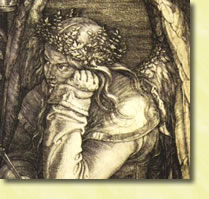In response to my post entitled “Why God Does Not Prevent Earthquakes or Tsunamis,” I received some questions from “Rob.” Here’s my somewhat lengthy response.
Rob,
Thanks for your comment. The above is a blog post, and is by necessity concise. I could not address every possible question or concern, and some things were implied more than stated, or, I assumed could be concluded reasonably in what I wrote above. To your questions:
1) Do you think this same sort of destruction of being is both possible and inevitable in the new heavens and new earth, which will be just as contingent as the first heavens and earth? If you don’t think this will be the case, why?
1) By definition, anything that is contingent is subject to the possibility of non-being. In fact, in a created universe, everything is intrinsically subject to the possibility of non-being at any given moment. The traditional Christian doctrine of creation is that if God were to cease the act of creation at any given moment, the entire universe would “blink out” like a light bulb. Even angels, who are “naturally” immortal, because immaterial, are dependent on God’s continuing power to exist at all. (Angels are “naturally” immortal, because they are pure minds. Not being composed of physical parts, they cannot die should their parts be destroyed. Nonetheless, should God cease to create them, they would cease existing.)
Of course, any universally broad statement like “destruction of being is both possible and inevitable” also has to be understood in light of other premises implicit in the very definition of contingency that would include an “unless.” Since all contingent being depends on God for its initial and continuing existence (by definition), the inevitability of destruction contains an assumed “all other factors being the same” or “unless” God wills otherwise. All contingent being always has the possibility of non-being, but, since all contingent being is given by God, there is nothing to prevent God’s continuing to give being. So, in the new heavens and the new earth, destruction of being is certainly intrinsically possible, since God alone is the source of creation, and could, if he willed, cease to create. However, destruction of being is not inevitable, if God decides either to preserve intrinsically destructible beings from harm, or to create beings in such a way that that they have an intrinsically natural immortality (something like the angels). Both possibilities are logically possible. What God will do is up to him. (more…)






